How to Theatre Properly
Going to a theatre (yeah, I’m sticking with that spelling version, AP Style police) can be confusing for first-time guests. “How do I dress?” “Will there be food and drinks?” “Can I talk to my friend?” All good questions. And now thanks to one of our member venues, Bass Performance Hall, there are answers. The venue teamed up with WFAA and comedy duo The Monthly Junk to deliver this fun PSA on theatre etiquette. Because knowing is half the battle.
Has your venue produced fun videos? Please share them with us if so.
Past IAVM Chair, Karen Totaro, CFE, Lands New Job
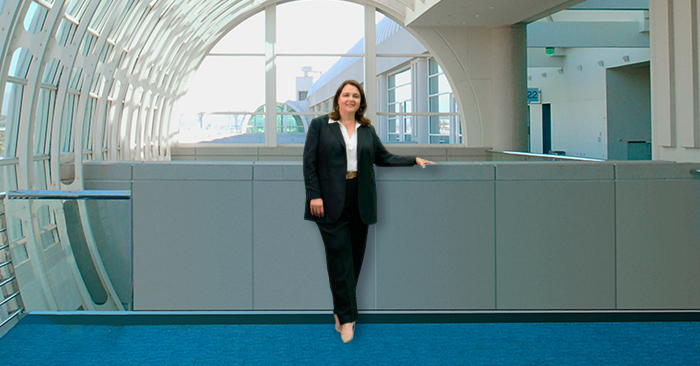
Congratulations to Karen Totaro, CFE, IAVM’s 2015-2016 chair, on being named the new senior vice president and general manager for the San Diego Convention Center!
“In our industry, the San Diego Convention Center has always been recognized as a venue at the forefront, so I am simply thrilled to be able to join such a strong team already in place with a great leader like its President & CEO Clifford ‘Rip’ Rippetoe,” Totaro said in a statement.
Totaro most recently served as the general manager of the Atlantic City Convention Center. She has also worked as the assistant general manager at the Duke Energy Convention Center, the assistant executive director of the Oregon Convention Center, and the associate director at the University of Dayton Arena.
“We are excited to have someone of Karen’s standards and qualifications join us here at the San Diego Convention Center,” Rippetoe said in a statement. “We look forward to welcoming her to a facility whose purpose is to be the premiere gathering place located at the heart of a world-class destination.”
Totaro has been widely involved in IAVM leadership for many years and currently chairs the IAVM Leadership/Nominating Committee.
“As the recent chairman of the board for the 5,000-member International Association of Venue Managers (IAVM), I have had the opportunity to travel extensively and nothing compares to the San Diego community in terms of warmth of spirit and creating a unique lifestyle that others only hope to emulate,” Totaro said.
Totaro begins her new job on Sept. 30, 2016.
Once again, congratulations Karen!
(Image: San Diego Convention Center)
On the Way to Certification
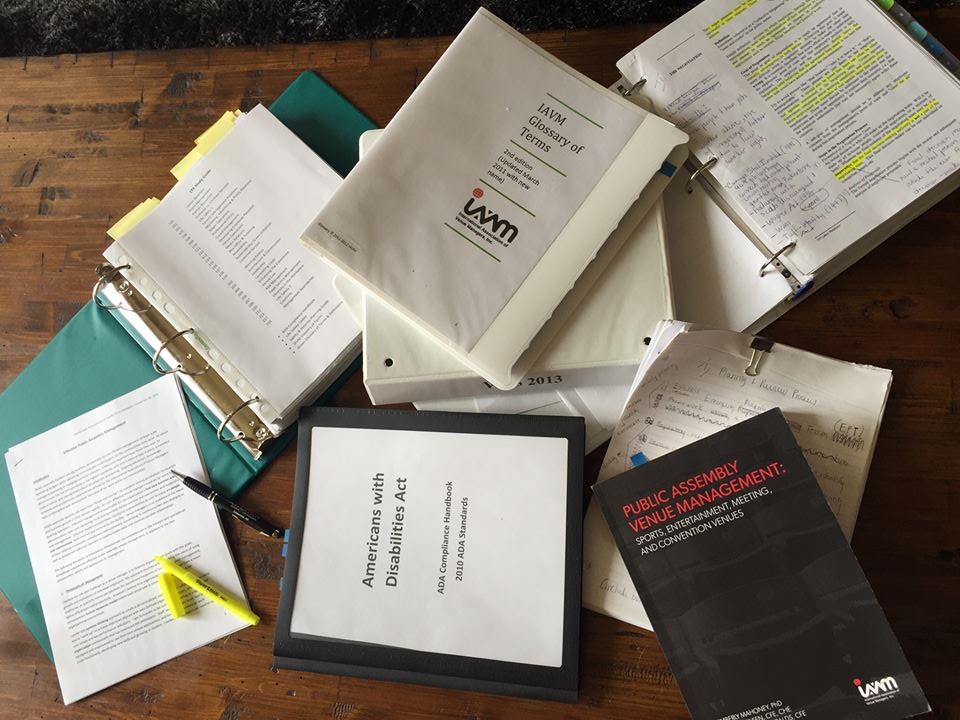
This post originally appeared on LinkedIn. It is republished with permission.
I just completed a long, hard journey to achieve industry certification: the International Association of Venue Managers’ (IAVM) coveted designation of Certified Facilities Executive (CFE). Yes, the achievement is gratifying but the real story comes from the surprising opportunities that sprang up during the year-long work to get there.
“It is the journey and not the destination that matters.”—T.S. Eliot
To qualify for CFE exams applicants must have worked for a minimum of seven years in the top levels of public venue management: arenas, stadiums, performing arts centers, or convention centers. This was a valuable opportunity to pause and reflect on the direction of my career while gathering proof points of education and industry involvement. It was surprising that reaching out to industry professionals for the required testimonial letters resulted in an unexpected opportunity for me to join IAVM’s Senior Executive Symposium Board of Governors.
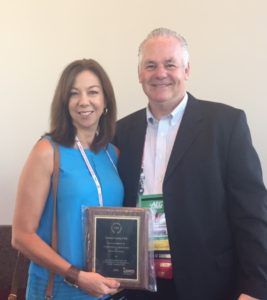
Lisanne Lewis, CFE, with CFE coach Russell Vandenberg, general manager of the Seaside Civic & Convention Center.
Completing the written essay, the next step of testing, meant writing a challenging mini-thesis on the core competencies of venue management. An interesting coincidence during the same time I was a candidate for the general manager role in our organization. The timing was perfect. Writing the essay forced an in-depth review of everything I had learned at IAVM’s Venue Management School, giving me the confidence and validation that ultimately led to successfully becoming the new general manager.
Opportunities and benefits continued to manifest as I moved further along the accreditation process. Studying for the next step, the written exam, forced me to review detailed operations material during the same time I was seeking answers to develop our strategic plan at work. Our convention centre required a more comprehensive Emergency Preparedness Plan – and suddenly there is was, all the guidelines and expert resources we needed listed in my study material.
The final step in the process was an oral interview with a panel of peers. This involved attending VenueConnect, a conference I would normally not attend and without which I would have missed forming the deeper commitment to our industry that I now feel. I gained a new appreciation that I am part of an international community of venue managers who are guided by service values, integrity, fairness, and a belief in constant learning and growth.
A venue executive who earns the CFE designation is recognized, by those inside and outside the industry, as trusted experts in their profession, skilled managers of any type of public assembly venue. You can also trust that they carry the learning and benefits of every step they took in the journey toward achieving that goal.
Webinar: Security for Outdoor Performing Arts Events
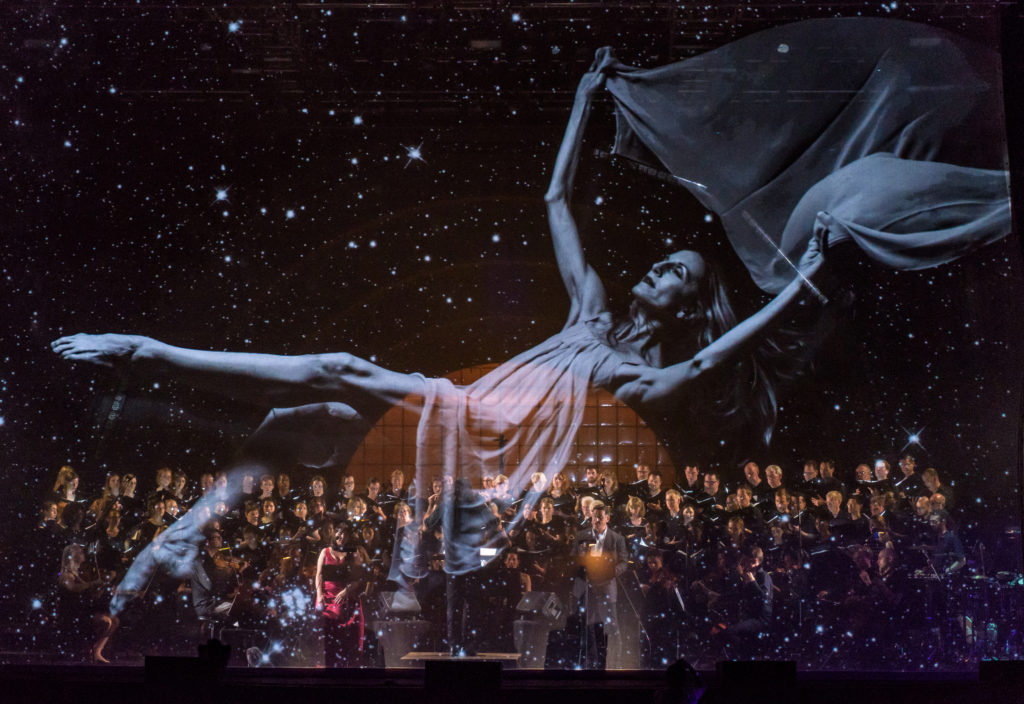
BRIC Celebrate Brooklyn! Festival – The Hubble Cantata, July 6, 2016, Prospect Park, New York
Heads up: There’s a free webinar on Thursday, August 18, 3-4 p.m. (EST) in which IAVM’s own Mark Herrera will be speaking. The topic is on security for outdoor performing arts events, and Herrea will talk about the following points:
—Public spaces as soft targets.
—What are the particular vulnerabilities of outdoor events?
—Where to get information on potential threats; how to see indicators of terrorism.
—Ingraining in staff and volunteers a mindset of situational awareness, and freedom to respond: If you see something, say something.
—What are easy/immediate things open-air spaces can put into place to reduce risk?
—Awareness and mitigating other risks in outdoor spaces: weather, accidents, earthquake, disruptive individuals.
—How to balance having security measures/people being visible and making people feel safe, without overdoing it and making people uncomfortable.
Other speakers include Mollie Quinlan-Hayes with South Arts and Jack Walsh with the BRIC Celebrate Brooklyn! Festival.
The Association of Performing Arts Presenters is offering the webinar, and it’s free for IAVM members. Register now!
(Image: Steven Pisano/Creative Commons)
Life in the Fast Lane
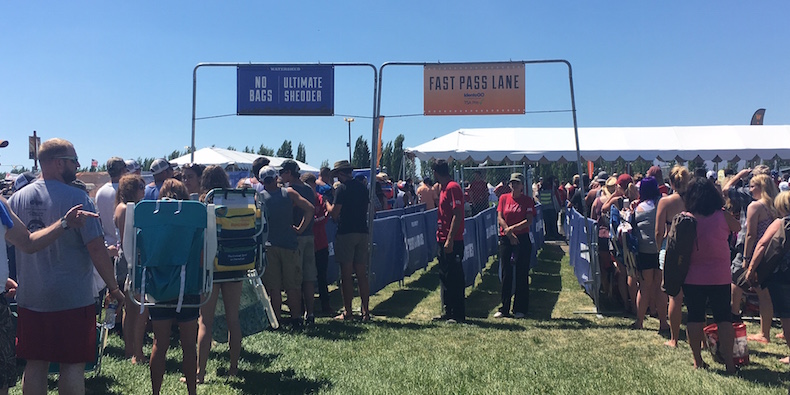
Live Nation and IdentoGO are working together to make sure music fans can enter airports and venues faster, Pitchfork reported.
“Attendees at certain Live Nation events can sign up for TSA PreCheck, which enables subscribers to bypass the airport security process,” reported Pitchfork‘s Marc Hogan. “Plus, TSA PreCheck members will have their own ‘Fast Pass’ for expedited entry at these events. [A] spokesperson clarified that, contrary to reports, the partnership with IdentoGO is not for security screening purposes, and applies to only ‘a very limited number of venues and events.'”
The recent Watershed music festival was the first event to offer onsite enrollment and a fast-pass line.
“Shorter lines will be available for TSA PreCheck members during the 2016-2017 concert season at these participating venues: the BB&T Pavilion in Camden, New Jersey; Gexa Energy Pavilion in Dallas; Lakewood Amphitheatre in Atlanta; P.N.C. Bank Arts Center in Holmdel, New Jersey; Perfect Vodka Amphitheatre in West Palm Beach, Florida; and San Manuel Amphitheatre in San Bernardino, California,” Hogan reported.
Please read “Live Nation Debuts Airport-Style Fast Lane at Music Festivals” for more on the story.
(Image: Live Nation/Pitchfork)
Do you want to receive a Front Row News weekly digest?
Categories
- Allied (861)
- Architecture (147)
- Arenas (747)
- Career (897)
- Convention Centers (895)
- Education (623)
- Events (1,544)
- Food & Beverage (193)
- Foundation (113)
- Guest Experience (1,496)
- Industry News (2,270)
- Leadership (1,888)
- Marketing (150)
- Membership (2,000)
- Music (213)
- Performing Arts Centers (454)
- Professional Development (409)
- Research (127)
- Safety & Security (442)
- Sports (763)
- Stadiums (608)
- Student (159)
- Technology (516)
- Ticketing (92)
- Touring (82)
- Trends (364)
- Uncategorized (725)
- Universities (218)
- Video (25)
- Young Professional (198)
Twitter Feed
- Twitter feed loading
Recent Posts
- McNamara Named General Manager of Will Rogers Memorial Center
- Matt Rife Breaks Record for Most Tickets Sold for a Comedy Show at Honda Center
- The Events Industry Council Recognizes the Miami Beach Convention Center (MBCC) for Achieving Gold Level Sustainability Certification
- Raleigh Convention Center Shares Designs of Upcoming Expansion
- Acrisure Arena Wraps ‘Magnificent 7’ with Record-Setting Week of Live Entertainment, Welcoming Fans from All 50 States
Categories
- Allied
- Architecture
- Arenas
- Career
- Convention Centers
- Education
- Events
- Food & Beverage
- Foundation
- Guest Experience
- Industry News
- Leadership
- Marketing
- Membership
- Music
- Performing Arts Centers
- Professional Development
- Research
- Safety & Security
- Sports
- Stadiums
- Student
- Technology
- Ticketing
- Touring
- Trends
- Uncategorized
- Universities
- Video
- Young Professional
Archives
- November 2025
- October 2025
- September 2025
- August 2025
- July 2025
- June 2025
- May 2025
- April 2025
- March 2025
- February 2025
- January 2025
- December 2024
- November 2024
- October 2024
- September 2024
- August 2024
- July 2024
- June 2024
- May 2024
- April 2024
- March 2024
- February 2024
- January 2024
- December 2023
- November 2023
- October 2023
- September 2023
- August 2023
- July 2023
- June 2023
- May 2023
- April 2023
- March 2023
- February 2023
- January 2023
- December 2022
- November 2022
- October 2022
- September 2022
- August 2022
- July 2022
- June 2022
- May 2022
- April 2022
- March 2022
- February 2022
- January 2022
- December 2021
- November 2021
- October 2021
- September 2021
- August 2021
- July 2021
- June 2021
- May 2021
- April 2021
- March 2021
- February 2021
- January 2021
- December 2020
- November 2020
- October 2020
- September 2020
- August 2020
- July 2020
- June 2020
- May 2020
- April 2020
- March 2020
- February 2020
- January 2020
- December 2019
- November 2019
- October 2019
- September 2019
- August 2019
- July 2019
- June 2019
- May 2019
- April 2019
- March 2019
- February 2019
- January 2019
- December 2018
- November 2018
- October 2018
- September 2018
- August 2018
- July 2018
- June 2018
- May 2018
- April 2018
- March 2018
- February 2018
- January 2018
- December 2017
- November 2017
- October 2017
- September 2017
- August 2017
- July 2017
- June 2017
- May 2017
- April 2017
- March 2017
- February 2017
- January 2017
- December 2016
- November 2016
- October 2016
- September 2016
- August 2016
- July 2016
- June 2016
- May 2016
- April 2016
- March 2016
- February 2016
- January 2016
- December 2015
- November 2015
- October 2015
- September 2015
- August 2015
- July 2015
- June 2015
- May 2015
- April 2015
- March 2015
- February 2015
- January 2015
- December 2014
- November 2014
- October 2014
- September 2014
- August 2014
- July 2014
- June 2014
- May 2014
- April 2014
- March 2014
- February 2014
- January 2014
- December 2013
- November 2013
- October 2013
- September 2013
- August 2013
- July 2013
- June 2013
- May 2013
- April 2013
- March 2013
- February 2013
- January 2013
- May 2012
- March 2012
- December 2011
- November 2011
- October 2011
Recent Comments
- Frank Bradshaw, Ph.D., CVE on John Meyer, CVE, a Tireless Advocate of Certification for Venue Professionals, Has Died
- Neil Sulkes on Hilary Hartung, Friend to Many in Venue Marketing, Has Left Us
- Jason Parker, CVE on The Devastation of Hurricane Helene and How We Can Support One Another
- Larry Perkins on Touhey Testifies Against Speculative Ticketing Before Congressional Subcommittee
- Peter Secord on Major Players for Planned Elkhart Amphitheater Were in the Mix at VenueConnect
